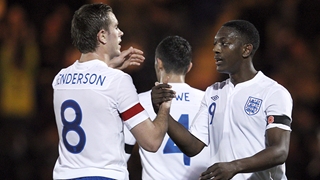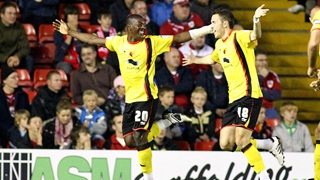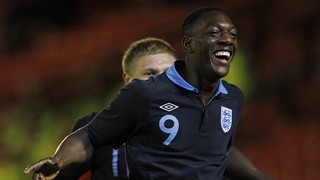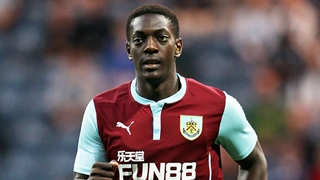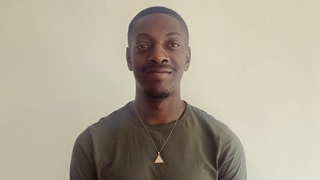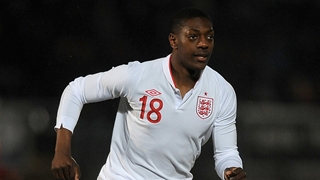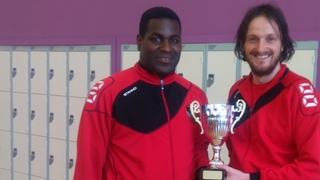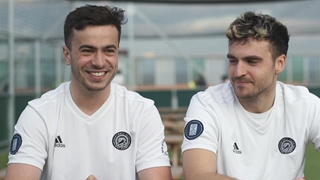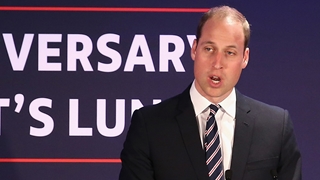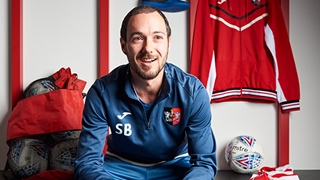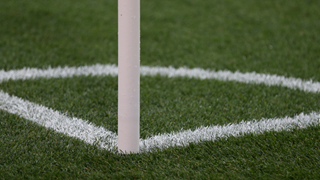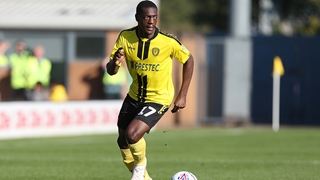
Former footballer Marvin Sordell has applauded the Heads Up initiative, during the week when he announced his retirement from the game.
The campaign, in partnership with Royal Foundation-backed mental health charity Heads Together, will run throughout the 2019-20 season starting at August’s FA Community Shield game at Wembley.
As well as promoting open dialogue around a wide range of mental health issues, it’ll provide not only players and staff but the entire football community with tools to improve their mental fitness.
Heads Up will be visible across all levels of English football and targets both sexes, but has a specific focus on men, who are three times more likely than women to commit suicide in the United Kingdom.
And Sordell, who has battled clinical depression and sadly tried to take his own life in 2013, believes all footballers can benefit from speaking more openly about their mental health, whether to pre-empt problems or help fix them.
“Football is a very macho game, so this is a difficult discussion to have,” admits the former England U21 striker, who is also an ambassador for mental health charity CALM.
“Heads Up can help normalise mental fitness in football.
“I really think we can take a big step this season after some baby steps in the past. Being visible and consistent pushing out this message of awareness, as well as being as supportive as possible to players, staff, fans and the entire football community, will help change things for the better.”
Sordell was one of England’s most promising young talents. As a child he was a reluctant goalkeeper, but the Arsenal fan soon decided to emulate his idol Ian Wright and switch to striker, earning a senior contract with Watford in 2009.
Three years and 27 goals later, he moved to then Premier League side Bolton Wanderers for a reported fee of £3 million.
His close control, speed and composed finishing made Sordell a handful in the box. He would go on to win 14 U21 caps and a place in Stuart Pearce’s London 2012 Great Britain squad alongside the likes of Danny Rose and Ryan Giggs.
But despite hitting his peak, all wasn’t well. In the midst of an enthralling Olympic Games on home soil, Sordell found himself lying in a dark hotel room close to tears.
“I was in a very deep depression and didn’t realise it until it was almost too late,” says Sordell, who spent last season on loan with Northampton Town.
“My mind wasn’t in the right place. There are no two ways about it. I suffered from performance anxiety for a very long time. I felt fine in training and then when I stepped out onto the pitch my body froze.
“My girlfriend at the time – who is now my wife – sent me to a doctor. I felt like I was carrying around a million tons on my shoulders and there was a grey cloud over my head.
“But I didn’t talk to anyone in football about my depression. That was my choice. I believed opening up would be used against me and only make the situation worse. I think there are plenty of players now going through exactly the same feelings and fearing talking about them will put their place in the team under threat.
“Being depressed can be far worse than a physical injury because at least when that happens you can be cleared medically, but a mental health ‘injury’ sticks with you forever – or at least that’s the worry.”
Sordell hit rock bottom in 2013 when he attempted suicide while on loan from Bolton at Charlton Athletic – a spontaneous decision after what he perceived to be a poor performance.
“I had just finished a match for Charlton. The specifics are a blur, but it clearly didn’t go well and before bed I decided that was it,” recounts Sordell, who was in the midst of a five-month goal drought for the Addicks at the time.
“To be honest, even before I went to Charlton on loan I was in a bad, bad way. So I took a load of tablets after a bad game and expected not to wake up. And when I did, I actually felt worse. It didn’t feel like either a lucky escape or a fresh start, it was just a case of here we go again.
“Obviously my advice to anyone who has suicidal thoughts, in or outside of football, is simple: seek help – straight away.
“But it’s not just suicide. Whether you are having a couple of down days, depressed, contemplating ending life or anything in-between, talk to someone. You might think the problem is small, but it can spiral out of control so quickly.”
Sordell now plans to use his voice during the Heads Up campaign to lobby clubs to employ full-time mental health professionals as he looks to focus on his own life after football.
“We need faces of mental health who are part of the playing staff at every team,” he says. “I did an independent survey and 73 per cent of the 200 footballers I spoke to were in favour, 22 per cent undecided and only five per cent said no.
“If independent mental health coaches were employed, it would also make moving easier. A big thing I hope [Heads Up] improves this season is how to treat players when they join a club.
“It’s not just when you sign, either. That’s when you’re wanted. Being loaned out, for instance, is very tough."
As part of his recovery process, Sordell took up writing. It gave him a platform away from football to express himself and proved cathartic. He penned a powerful poem called Denis Prose – an anagram for depression – which he has since turned into a short firm using a production company he also co-founded.
“It was important to find a release and an identity outside of the game,” says Sordell.
“For most players, football is their entire world, but that’s a very precarious position to be in since your fate is always in someone else’s hands.
“So I decided to take back control and got into writing poetry. It gave me self-belief and showed me there was more to life than just football.
“It was empowering. I think it was refreshing, too, for people to see some reality and honesty. My story isn’t polished. Football is a very manufactured game, and everything has to be portrayed perfectly, but being real and opening up is what creates true connections.”
Heads Up will elevate the conversation around mental health to ensure that players like Sordell, along with the wider football community, feel compelled and comfortable to assess and address their mental fitness and have the resources and support system to do so.
“Every single footballer is a human being first and foremost,” says Sordell, who is now successfully managing his depression.
“We need to always put the human being first, not the footballer. That’s harder than ever as football and its finances grow so fast. Of course, this is good for the game in many ways, but it does add pressure on those playing.
“To make genuine progress we need to always remember footballers, just like fans, are fallible. We have feelings and problems like everybody else. These must be respected, spoken about and, when needed, dealt with and I hope Heads Up takes a significant step towards doing this.”
Heads Up starts on Sunday 4 August at The FA Community Shield. Find out more about the Royal Foundation-backed Heads Together.


